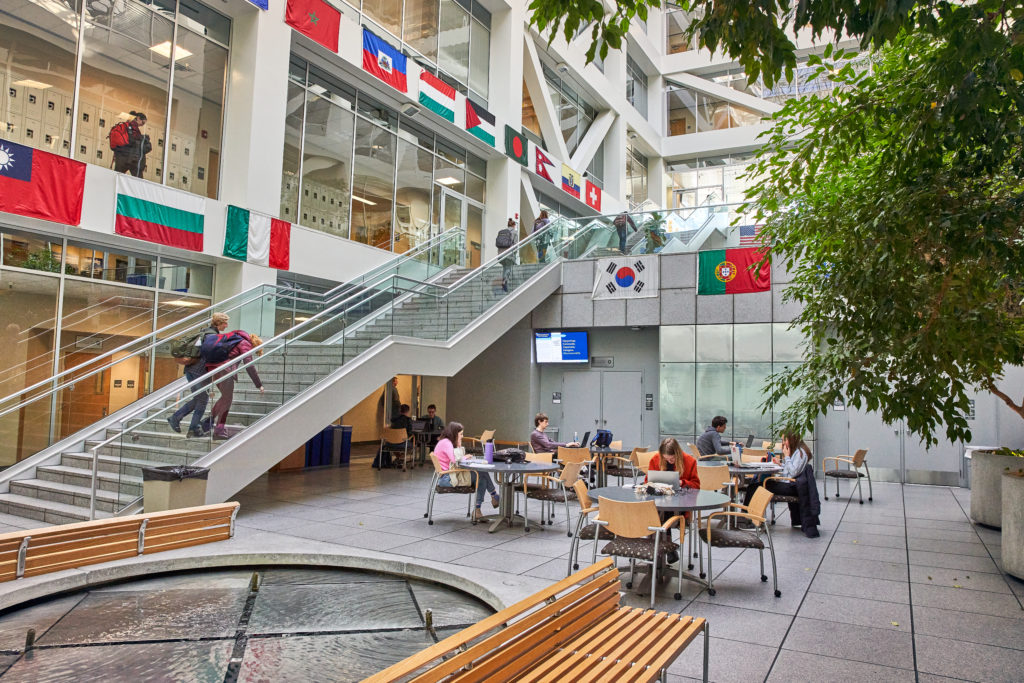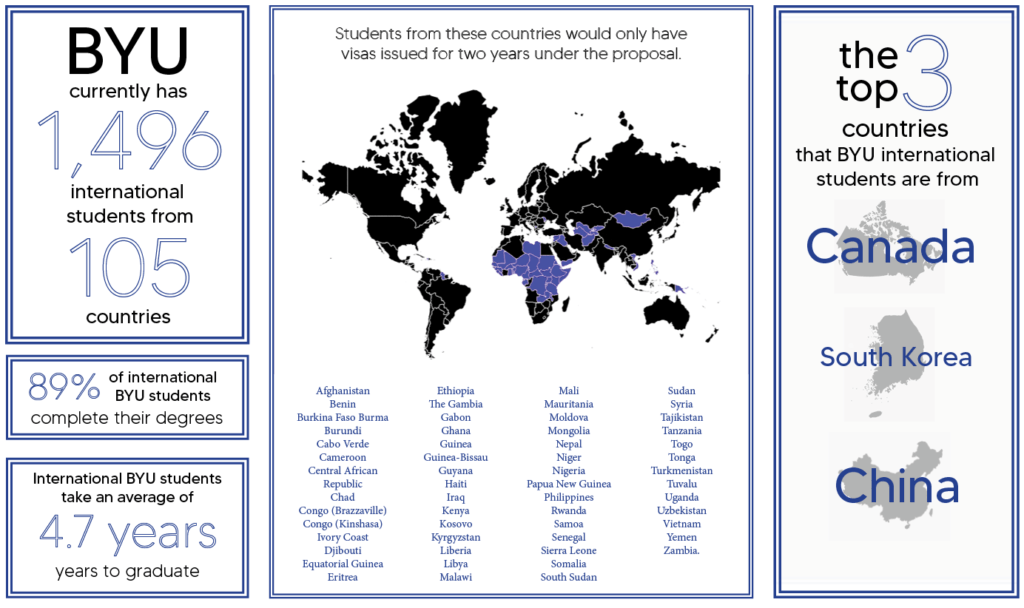
BYU has voiced its opposition to a new proposal restricting the time international students can study in the U.S. to two or four years, saying it will have “a significant, negative impact on international students.”
The proposal was released by the Department of Homeland Security (DHS) earlier this fall and has been met with pushback from immigration advocates, members of Congress and other universities.
A letter signed by Sam Brown, BYU’s International Student Services director, was sent to the DHS during the public commentary period the government allowed for the proposal.
The letter states the proposed rule does not take into account that many academic programs are designed to exceed four years in length and, thus, many international students would not be able to complete their programs under the proposed time limits. The letter also says the proposal would limit international students’ ability to participate in internships, introduce uncertainty about whether students will be able to complete their academic programs, and increase their out-of-pocket expenses as they’re required to pay for visa extension fees.
“Rather than encouraging the completion of academic programs and safeguarding national security, the Proposed Rule presents an unnecessary barrier that is likely to reduce the number of international students in the United States,” the letter states. “The university strongly urges reconsideration of this Proposed Rule.”
The proposal would also decrease the grace period that allows some international students to stay in the U.S. after graduation or completing an optional practical training (OPT) to 30 days instead of 60.
The proposal is the latest bump in a rollercoaster year for international students, who earlier this year faced uncertainty after Immigration and Customs Enforcement announced it would not allow international students to enter or remain in the U.S. if their classes went online due to COVID.
Although the Trump administration reversed course after a widespread outcry at the rule, some students hypothesized the White House would enact a new policy to limit international students. Call it a self-fulfilling prophecy or a Trump administration M.O., but it seems those students were right.
BYU’s website states it currently has 1,496 international students from 105 countries, with Canada, South Korea and China being the top three nations represented.
BYU spokesperson Todd Hollingshead said 89% of international BYU students complete their degrees and that they take on average 4.7 years to graduate — longer than would be allowed under the proposed student visa limits.
A few unlucky students would only have visas issued for two years under the proposal. This applies to students whose country of origin is designated as a “State Sponsor of Terrorism,” has a student and exchange visitor total overstay rate greater than 10% or is labeled as a U.S. National Interest as determined by the Department of Homeland Security.

Hollingshead said the most recent data shows BYU has 75-80 students from these countries. One of those students is Beryl Peña. She had planned on starting her freshman year in Provo but wasn’t able to get her student visa processed after the Trump administration shut down U.S. consulates in the early days of the pandemic.
She plans on applying to BYU’s nursing program but is worried DHS’s proposed rules would make it more difficult for her to complete her degree.
“It just makes me feel unsafe,” she said. “I get that they’re trying to limit illegal immigrants and all that stuff, but personally I feel like we’re already heavily monitored by ICE (Immigration and Customs Enforcement). So it’s like we don’t even have room to move.”
Students who need longer than their allotted two or four years to complete their programs would be able to apply for a visa extension, a difficult process in itself.
A letter from BYU International Student Services sent to BYU international students on Oct. 5 said applying for an extension would likely take a significant amount of time and would cost $455 in fees.
“Our understanding so far is that you would be able to petition to the government through the United States Citizenship and Immigration Services (USCIS) to have that extended,” the letter stated. “But ultimately the decision would be up to them and not the school anymore.”
Beryl, who would need to apply for an extension to complete her program, is worried the process would take too long and she’d end up being deported.
“It kind of feels like it could possibly be a trap, but I’m not sure,” she said.
BYU alumna Karmen Kodia came to the U.S. on a student visa in January 2016. She knew she wanted to study journalism from the start but had to push back graduation a year after deciding to transfer to BYU.
Kodia said that had the DHS proposal been in effect when she was a student, she likely would have decided against transferring since doing so would have meant filing for an extension. She fears if the proposal is passed, some students may get stuck in programs because they won’t have time within the DHS limits to change their majors.
“Most people, even Americans, don’t finish school in four years, so how can you put that on international students who don’t even know this culture or language? It doesn’t make any sense,” Kodia said. “I think the new proposal will hurt a lot of students and the United States.”
Since the public commentary period for the proposal closed on Oct. 26, DHS has not released any more information regarding the proposal and whether it will be implemented.
BYU International Student Services sent an email to international students on Nov. 23 confirming it had not received any updates from DHS regarding policies for Winter 2021.
“We understand how frustrating this is now that registration is open. As soon as we know anything we will let you all know as well,” the email reads. “While we anticipate having those same allowances for Winter 2021, we cannot guarantee that they will be extended. As you do your best to move forward without knowing, we encourage you to be flexible and have backup plans just in case.”




